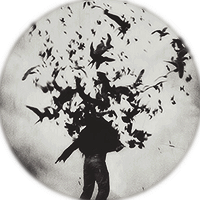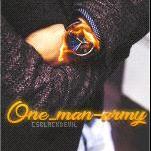About -ßlăckAŋgel-
- Birthday 02/01/2010
Title
-
Respect Your Self ♪
Informations
-
Gender
Male
Recent Profile Visitors
487 profile views
-ßlăckAŋgel-'s Achievements
Newbie (1/14)
1
Reputation
-
*ahmad* started following -ßlăckAŋgel-
-
nurik- started following -ßlăckAŋgel-
-
abdo. started following -ßlăckAŋgel-
-
A.N.R Anouar A.N.R started following -ßlăckAŋgel-
-
ITS OZX- started following -ßlăckAŋgel-
-
A day after court ordered his release; J-K government has slapped Public Safety Act (PSA) against prominent human rights defender Khurram Parvez and is shifting him to Kotbalwal jail in Jammu. Deputy Commissioner Srinagar Farooq Ahmad Lone, who booked Khurram under the PSA, didn’t respond to calls. However, J-K government spokesman and Education Minister Nayeem Akhtar said that the decision to book Khurram under PSA must have been taken by someone in the government. “I am learning it from you,” he said. “But it must have been taken on merits”. The valley has witnessed a steep increase in booking people under the PSA since the centre asked the state government to “act tough against the instigators” of the protests. After Panama, Bahamas: An Express Investigation While the J-K government had recommended PSA against 205 persons in the first two months of the massive street protests, the number of recommendations has increased to 483 in past 15 days. The figures reveal that the District Magistrates have so far sanctioned PSA against 398 people – the number on September 5 was 174. While only 105 sanctions were executed till September 5, the number has gone up to more than 307. On Tuesday, the Principal District & Sessions Judge Srinagar Rashid Ali Dar had set aside the detention orders against Khurram and directed the J-K Police to release him. However, instead of following the court orders, J-K Police on Wednesday booked him under PSA, a law that allows police to detain a person without trial for a period of six months. “We have been told that he has been booked under PSA and is being shifted to Kotbalwal jail. We have been told that government has registered an FIR against him in Police Station Nehru Park for ‘activities likely to cause breach of peace and hatred among communities,” said Zahir-ud-din, a member of JKCCS. He said that Khurram’s family had written to the Deputy Commissioner Srinagar Lone asking him not to shift him to Jammu as he is physically challenged. “There was no answer from the deputy commissioner,” Zahir-ud-din said. Though Khurram has been arrested first time for his work, he has made bigger sacrifices for his commitment to human rights and civil society activism in Kashmir. On April 20, 2004, while polling for general elections was going on in Kashmir, Khurram and Asiya Jeelani (29), a friend and colleague, were traveling in Kupwara district to monitor poll proceedings in remote villages of Lolab. They were working for JKCCS, a voluntary group set up in 2000 with an aim to “reinforce civil society, protect human rights and replace the culture of intolerance by the culture of dialogue and understanding for ensuring peace and democracy”. The chairperson of Asian Federation Against Involuntary Disappearances (AFAD) and programme coordinator of J-K Coalition of Civil Society (JKCCS), Khurram was picked up by on the night of September 15 and put under “preventive detention” because police “apprehended he may cause a breach of peace”. The executive magistrate, a revenue officer, who ordered Khurram’s detention, had invoked section 107 and 151 of RPC against him. But the court on Tuesday reprimanded the executive magistrate and questioned his knowledge of law. A day before his arrest in Srinagar, Khurram was stopped from boarding a flight – at the Indira Gandhi International Airport in New Delhi – to Geneva, where he was going to attend the 33rd session of UN Human Rights Commission (UNHRC). In 2006, Khurram received the Reebok Human Rights Award, a prestigious international prize that “recognizes young activists who have made significant contributions to human rights causes through non violent means”. A graduate from Media Education Research Centre, Khurram has also helped set up Global Vision – a voluntary group of media students – and have made two films: Chandov (The Search), which documented the sufferings of parents of men who disappeared during the conflict, and on the life of Asiya Jeelani, killed in the mine blast while on election monitoring project with Khurram in 2004. Over the years, Khurram has been at the centre of projects conducted by JKCCS on serious human rights issues, civil society debates and published detailed reports on enforced disappearances, mass graves, fake encounters, half-widows (whose husbands disappeared but have not been declared dead), besides coming out with annual human rights reviews. The organisation also runs ‘Voices Unheard’ – a magazine run by Kashmiri Women’s Initiative for Peace and Disarmament and a wing of JKCCS where the group documents stories of the struggles of ordinary Kashmiri women.
-
The US Secretary of State has called for all planes to be grounded in key areas of Syria to save the truce there, following an attack on an aid convoy. In a blistering speech at the United Nations, John Kerry said the future of Syria was "hanging by a thread". He said Monday's attack, which killed 20 civilians, had raised profound doubt over whether Russia and the Syrian government would live up to terms of the ceasefire deal. Moscow has denied being involved. Why truce was doomed to fail Convoy attack: What we know Children suffer horrors of Syria's war What's left after five years of war? The Russian defence ministry now says a US drone was in the area where the aid convoy was struck. Gen Igor Konashenkov said a Predator strike drone appeared above the convoy several minutes before it caught fire, and left the area 30 minutes later. "We are not jumping to unfounded conclusions. Only its owners know why the drone was in the area at the right time and what kind of tasks it was pursuing there," the general said. He did not directly accuse the US of firing on the aid convoy from a drone but pointedly said that such a drone could carry out high-precision strikes against targets on the ground. Jump media playerMedia player helpOut of media player. Press enter to return or tab to continue. Media captionUS Secretary of State John Kerry speaking to the UN about the fragile Syria ceasefire His comments follow Mr Kerry's declaration that Russia should stand up and take responsibility for air strikes, criticising Russia's defence ministry for changing its story. He said he felt like Russia was in "a parallel universe" after listening to his Russian counterpart Sergei Lavrov address the council. Jump media playerMedia player helpOut of media player. Press enter to return or tab to continue. Media captionA member of the Syria Civil Defence, also known as the White Helmets, describes the aftermath of the attack on an aid convoy in Urum al-Kubra Syrians gather near damaged trucks which was part of a convoy carrying aid (20 September 2016)Image copyrightAFP Image caption The UN says at least 18 trucks in the convoy were destroyed in the bombing The UN says it has resumed preparation for convoys of aid to Syria and hopes to deliver aid to besieged and hard-to-reach areas as soon as possible. Monday's attack prompted the UN to suspend all aid convoys to those areas. 'Heavy blow' Mr Kerry said flights should stop "in order to de-escalate the situation and give a chance for humanitarian assistance to flow unimpeded". The attack had "dealt a heavy blow to our efforts to bring peace to Syria," he said. A further attack on Tuesday night killed five medical workers for an international aid agency. A partial truce brokered by the US and Russia lasted just a week. Heavy air raids have continued in Syria, especially in and around Aleppo. Speaking after the UN Security Council meeting, UK Foreign Secretary Boris Johnson said "the overwhelming responsibility for the breaches in the ceasefire that we have seen lies with the Assad regime and indeed its sponsors". But he said, the peace process that led to the truce could be revived. Syria's five-year civil war has left more than 250,000 people dead and displaced more than 11 million others. Jump media playerMedia player helpOut of media player. Press enter to return or tab to continue. Media captionAleppo: Key battleground in Syria's civil war Analysis: by Jonathan Marcus, Diplomatic correspondent, BBC News Secretary of State John Kerry's proposal that all aircraft should be prohibited from flying over certain areas of Syria so that humanitarian aid can be delivered unhindered probably falls short of a formal no-fly zone. Who for example might police such a zone? Would aircraft intruding into it be shot down, and if so by whom? Managing such small parcels of air space could also be a problem - any aircraft flying into them could be many miles away in a very short space of time. Mr Kerry's idea though is probably to be seen more as a declaratory policy: an attempt to get the Russians and Syrians - the only people likely to fly aircraft that might strike targets in these zones - to formally acknowledge that they will not do so.
-
welcome have fun
-
-ßlăckAŋgel- changed their profile photo
-
Welcome To Csbd Enjoy Have Fun




.thumb.gif.e388844908a7fd01c9298ec01fa21a62.gif)




